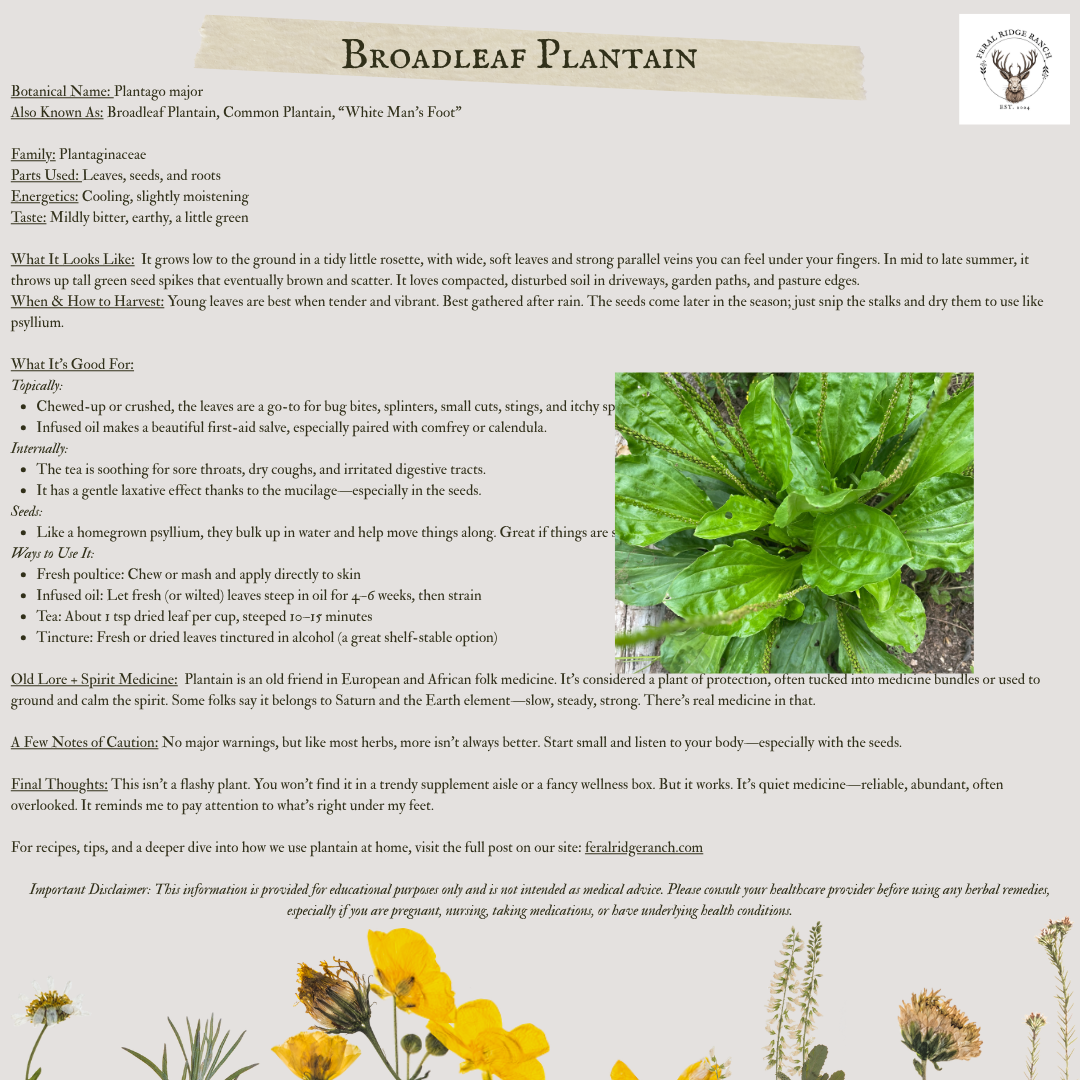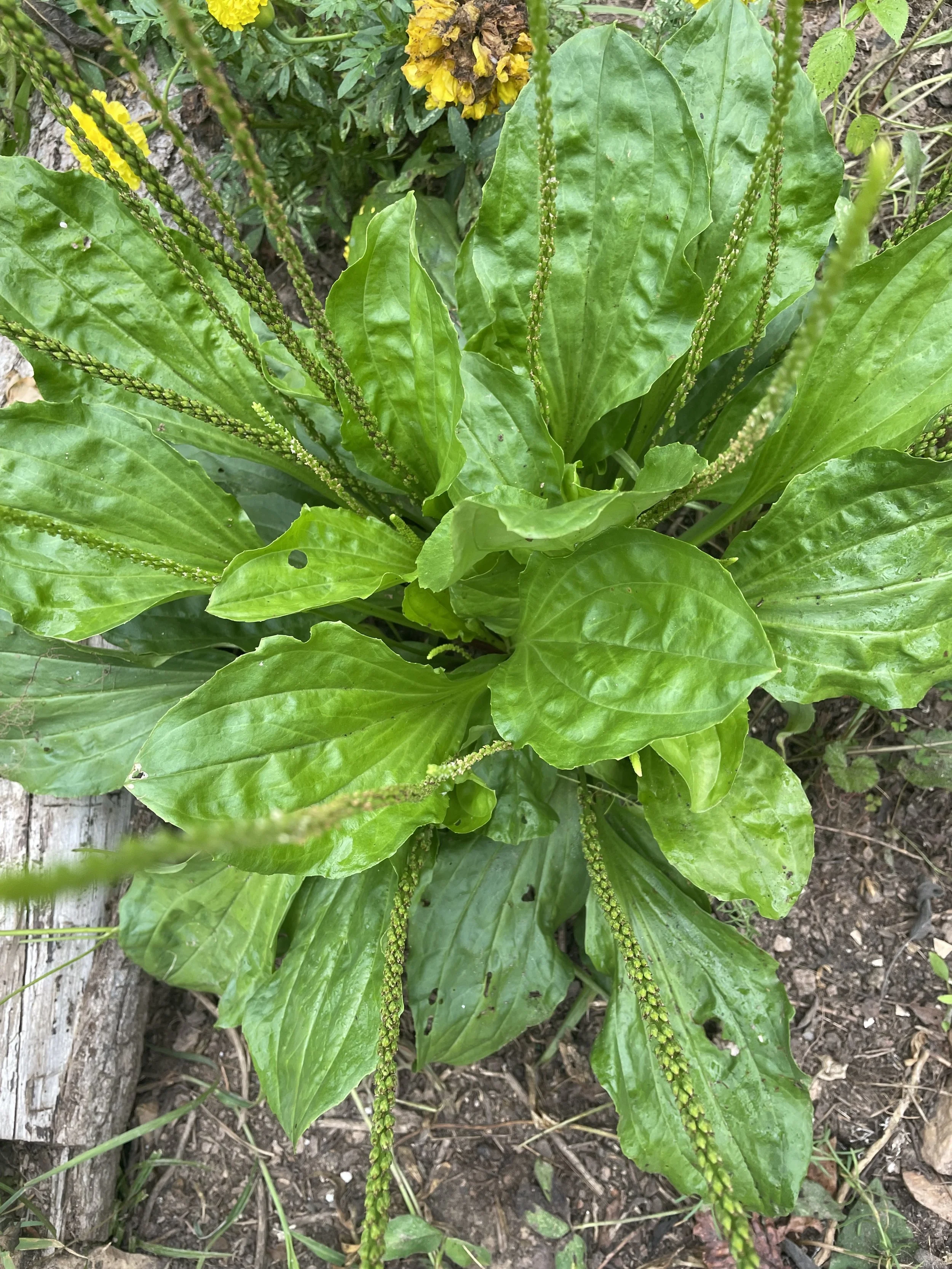Materia Medica: Broadleaf Plantain
Materia Medica: Broadleaf Plantain (Plantago major)
Botanical Name: Plantago major
Also Known As: Broadleaf Plantain, Common Plantain, “White Man’s Foot”
Family: Plantaginaceae
Parts Used: Leaves, seeds, and roots
Energetics: Cooling, slightly moistening
Taste: Mildly bitter, earthy, a little green
What It Looks Like:
It grows low to the ground in a tidy little rosette, with wide, soft leaves and strong parallel veins you can feel under your fingers. In mid to late summer, it throws up tall green seed spikes that eventually brown and scatter. It loves compacted, disturbed soil—driveways, garden paths, and pasture edges.
When & How to Harvest:
Young leaves are best when tender and vibrant. I like to gather them after a rain when they’re especially lush. The seeds come later in the season; just snip the stalks and dry them to use like psyllium. You can also gently dig up the roots for deeper medicine if needed.
What It’s Good For:
Topically:
Chewed-up or crushed, the leaves are a go-to for bug bites, splinters, small cuts, stings, and itchy spots.
Infused oil makes a beautiful first-aid salve, especially paired with comfrey or calendula.
Internally:
The tea is soothing for sore throats, dry coughs, and irritated digestive tracts.
It has a gentle laxative effect thanks to the mucilage—especially in the seeds.
Seeds:
Like a homegrown psyllium, they bulk up in water and help move things along. Great if things are sluggish.
Ways to Use It:
Fresh poultice: Chew or mash and apply directly to skin
Infused oil: Let fresh (or wilted) leaves steep in oil for 4–6 weeks, then strain
Tea: About 1 tsp dried leaf per cup, steeped 10–15 minutes
Tincture: Fresh or dried leaves tinctured in alcohol (a great shelf-stable option)
Old Lore + Spirit Medicine:
Plantain is an old friend in European and African folk medicine. It’s considered a plant of protection, often tucked into medicine bundles or used to ground and calm the spirit. Some folks say it belongs to Saturn and the Earth element—slow, steady, strong. There’s real medicine in that.
A Few Notes of Caution:
No major warnings, but like most herbs, more isn’t always better. Start small and listen to your body—especially with the seeds.
Important Disclaimer:
This information is provided for educational purposes only and is not intended as medical advice. Please consult your healthcare provider before using any herbal remedies, especially if you are pregnant, nursing, taking medications, or have underlying health conditions.
Final Thoughts:
This isn’t a flashy plant. You won’t find it in a trendy supplement aisle or a fancy wellness box. But it works. It’s quiet medicine—reliable, abundant, often overlooked. It reminds me to pay attention to what’s right under my feet.
For recipes, tips, and a deeper dive into how we use plantain at home, visit the full post on our site: feralridgeranch.com


